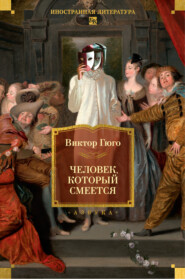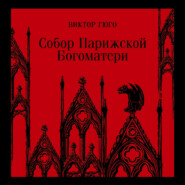По всем вопросам обращайтесь на: info@litportal.ru
(©) 2003-2024.
✖
Les Misérables, v. 1
Настройки чтения
Размер шрифта
Высота строк
Поля
"What are you doing there?"
M. Madeleine had been standing at this spot for an hour, waiting till Fantine should wake. He took her hand, felt her pulse, and answered, —
"How are you?"
"Very comfortable; I have slept, and fancy I am better. It will be nothing."
He continued answering the question she had asked him first, and as if he had only just heard it, —
"I was praying to the martyr up there;" and he mentally added, "for the martyr down here."
M. Madeleine had spent the night and morning in making inquiries, and had learned everything; he knew all the poignant details of Fantine's history. He continued, —
"You have suffered deeply, poor mother. Oh! do not complain, for you have at present the dowry of the elect: it is in this way that human beings become angels. It is not their fault; they do not know what to do otherwise. The hell you have now left is the ante-room to heaven, and you were obliged to begin with that."
He breathed a deep sigh, but she smiled upon him with the sublime smile in which two teeth were wanting. Javert had written a letter during the past night, and posted it himself the next morning. It was for Paris, and the address was: "Monsieur Chabouillet, Secretary to the Prefect of Police." As a rumor had spread about the affair in the police office, the lady-manager of the post, and some other persons who saw the letter before it was sent off and recognized Javert's handwriting, supposed that he was sending in his resignation. M. Madeleine hastened to write to the Thénardiers. Fantine owed them over 120 francs, and he sent them 300, bidding them pay themselves out of the amount, and bring the child at once to M – , where a sick mother was awaiting it. This dazzled Thénardier. "Hang it all!" he said to his wife, "we must not let the brat go, for the lark will become a milch cow for us. I see it all; some fellow has fallen in love with the mother." He replied by sending a bill for 500 and odd francs very well drawn up. In this bill two undeniable amounts figure, one from a physician, the other from an apothecary, who had attended Éponine and Azelma in a long illness. Cosette, as we said, had not been ill, and hence it was merely a little substitution of names. At the bottom of the bill Thénardier gave credit for 300 francs received on account. M. Madeleine at once sent 300 francs more, and wrote, "Make haste and bring Cosette."
"Christi!" said Thénardier, "we must not let the child go."
In the mean while Fantine did not recover, and still remained in the infirmary. The sisters had at first received and nursed "this girl" with some repugnance; any one who has seen the bas-relief at Rheims will remember the pouting lower lip of the wise virgins looking at the foolish virgins. This ancient contempt of Vestals for Ambubaïæ is one of the deepest instincts of the feminine dignity, and the sisters had experienced it, with the increased dislike which religion adds. But in a few days Fantine disarmed them; she had all sorts of humble and gentle words, and the mother within her was touching. One day the sisters heard her say in the paroxysm of fever, "I have been a sinner, but when I have my child by my side, that will show that God has forgiven me. While I was living badly, I should not have liked to have Cosette with me, for I could not have endured her sad and astonished eyes. And yet it was for her sake that I did wrong, and for that reason God pardons me. I shall feel the blessing of Heaven when Cosette is here; I shall look at her, and it will do me good to see the innocent creature. She knows nothing, as she is an angel. My sisters, at her age the wings have not yet dropped off."
M. Madeleine went to see her twice a day, and every time she asked him, "Shall I see my Cosette soon?"
He would answer, —
"To-morrow, perhaps; she may arrive at any moment, for I am expecting her."
And the mother's pale face would grow radiant.
"Oh!" she said, "how happy I shall be!"
We have said that she did not improve; on the contrary, her condition seemed to grow worse week by week. The handful of snow placed between her naked shoulder-blades produced a sudden check of perspiration, which caused the illness that had smouldered in her for years suddenly to break out. Larmier's fine method for studying and healing diseases of the lungs was just beginning to be employed; the physician placed the stethoscope to Fantine's chest, and shook his head. M. Madeleine said to him, —
"Well?"
"Has she not a child that she wishes to see?" asked the doctor.
"Yes."
"Well, make haste to send for her."
Madeleine gave a start, and Fantine asked him, —
"What did the doctor say to you?"
M. Madeleine forced a smile.
"He said that your child must come at once, for that would cure you."
"Oh," she replied, "he is right; but what do those Thénardiers mean by keeping my Cosette? Oh, she will come, and then I shall see happiness close to me."
Thénardier, however, would not let the child go, and alleged a hundred poor excuses. Cosette was ailing, and it would be dangerous for her to travel in winter; and then there were some small debts still to pay, which he was collecting, &c.
"I will send some one to fetch Cosette," said Father Madeleine; "if necessary, I will go myself."
He wrote to Fantine's dictation the following letter, which she signed.
"M. THÉNARDIER, – " You will hand over Cosette to the bearer, who will pay up all little matters. "Yours, FANTINE."
About this time a great incident happened. However cleverly we may have carved the mysterious block of which our life is made, the black vein of destiny ever reappears in it.
CHAPTER II
HOW "JEAN" MAY BECOME "CHAMP."
One morning M. Madeleine was in his study, engaged in settling some pressing mayoralty matters, in case he decided on the journey to Montfermeil, when he was told that Inspector Javert wished to speak with him. On hearing this name pronounced, M. Madeleine could not refrain from a disagreeable impression. Since the guard-room adventure Javert had avoided him more than ever, and M. Madeleine had not seen him again.
"Show him in," he said.
Javert entered. M. Madeleine remained at his table near the fire-place with a pen in his hand and his eyes fixed on a bundle of papers, which he ran through and annotated. He did not put himself out of the way for Javert, for he could not refrain from thinking of poor Fantine. Javert bowed respectfully to the Mayor, who had his back turned to him; the Mayor did not look at him, but continued to make his notes. Javert walked a little way into the study, and then halted without a word. A physiognomist familiar with Javert's nature, and who had studied for any length of time this savage in the service of civilization, – this strange composite of the Roman, the Spartan, the monk, and the corporal, this spy incapable of falsehood, this virgin detective, – a physiognomist aware of his secret and old aversion to M. Madeleine, and his conflict with him about Fantine, and who regarded Javert at this moment, would have asked himself, What has happened? It was evident to any one who knew this upright, clear, sincere, honest, austere, and ferocious conscience, that Javert had just emerged from some great internal struggle. Javert had nothing in his mind which he did not also have in his face, and, like all violent men, he was subject to sudden changes. Never had his face been stranger or more surprising. On entering, he bowed to M. Madeleine with a look in which there was neither rancor, anger, nor suspicion; he had halted a few yards behind the Mayor's chair, and was now standing there in an almost military attitude, with the simple cold rudeness of a man who has never been gentle and has ever been patient. He was waiting, without saying a word, without making a movement, in a true humility and tranquil resignation, till the Mayor might think proper to turn round, – calm, serious, hat in hand, and with an expression which was half-way between the private before his officer and the culprit before the judge. All the feelings as well as all the resolutions he might be supposed to possess had disappeared: there was nothing but a gloomy sadness on this face, which was impenetrable and simple as granite. His whole person displayed humiliation and firmness, and a sort of courageous despondency. At length the Mayor laid down his pen and half turned round.
"Well, what is the matter, Javert?"
Javert remained silent for a moment, as if reflecting, and then raised his voice with a sad solemnity, which, however, did not exclude simplicity.
"A culpable deed has been committed, sir."
"What deed?"
"An inferior agent of authority has failed in his respect to a magistrate in the gravest matter. I have come, as is my duty, to bring the fact to your knowledge."
"Who is this agent?" M. Madeleine asked
"Myself."
"And who is the magistrate who has cause to complain of the agent?"
"You, Monsieur le Maire."
M. Madeleine sat up, and Javert continued with a stern air and still looking down, —
"Monsieur le Maire, I have come to request that you will procure my dismissal from the service."
M. Madeleine in his stupefaction opened his mouth, but Javert interrupted him, —
"You will say that I could have sent in my resignation, but that is not enough. Such a course is honorable, but I have done wrong, and deserve punishment. I must be dismissed."
And after a pause he added, —

















